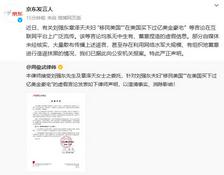Python2.7在Windows上有一个bug,运行报错:
UnicodeDecodeError: 'ascii' codec can't decode byte 0xc4 in position 33: ordinal not in range(128)
解决方案如下:
编辑Python27\Lib\mimetypes.py文件,全选,替换为以下patch后的正确脚本,或者直接依据此patch修改:
"""Guess the MIME type of a file.
This module defines two useful functions:
guess_type(url, strict=1) -- guess the MIME type and encoding of a URL.
guess_extension(type, strict=1) -- guess the extension for a given MIME type.
It also contains the following, for tuning the behavior:
Data:
knownfiles -- list of files to parse
inited -- flag set when init() has been called
suffix_map -- dictionary mapping suffixes to suffixes
encodings_map -- dictionary mapping suffixes to encodings
types_map -- dictionary mapping suffixes to types
Functions:
init([files]) -- parse a list of files, default knownfiles (on Windows, the
default values are taken from the registry)
read_mime_types(file) -- parse one file, return a dictionary or None
"""
from itertools import count
import os
import sys
import posixpath
import urllib
try:
import _winreg
except ImportError:
_winreg = None
__all__ = [
"guess_type","guess_extension","guess_all_extensions",
"add_type","read_mime_types","init"
]
knownfiles = [
"/etc/mime.types",
"/etc/httpd/mime.types", # Mac OS X
"/etc/httpd/conf/mime.types", # Apache
"/etc/apache/mime.types", # Apache 1
"/etc/apache2/mime.types", # Apache 2
"/usr/local/etc/httpd/conf/mime.types",
"/usr/local/lib/netscape/mime.types",
"/usr/local/etc/httpd/conf/mime.types", # Apache 1.2
"/usr/local/etc/mime.types", # Apache 1.3
]
inited = False
_db = None
class MimeTypes:
"""MIME-types datastore.
This datastore can handle information from mime.types-style files
and supports basic determination of MIME type from a filename or
URL, and can guess a reasonable extension given a MIME type.
"""
def __init__(self, filenames=(), strict=True):
if not inited:
init()
self.encodings_map = encodings_map.copy()
self.suffix_map = suffix_map.copy()
self.types_map = ({}, {}) # dict for (non-strict, strict)
self.types_map_inv = ({}, {})
for (ext, type) in types_map.items():
self.add_type(type, ext, True)
for (ext, type) in common_types.items():
self.add_type(type, ext, False)
for name in filenames:
self.read(name, strict)
def add_type(self, type, ext, strict=True):
"""Add a mapping between a type and an extension.
When the extension is already known, the new
type will replace the old one. When the type
is already known the extension will be added
to the list of known extensions.
If strict is true, information will be added to
list of standard types, else to the list of non-standard
types.
"""
self.types_map[strict][ext] = type
exts = self.types_map_inv[strict].setdefault(type, [])
if ext not in exts:
exts.append(ext)
def guess_type(self, url, strict=True):
"""Guess the type of a file based on its URL.
Return value is a tuple (type, encoding) where type is None if
the type can't be guessed (no or unknown suffix) or a string
of the form type/subtype, usable for a MIME Content-type
header; and encoding is None for no encoding or the name of
the program used to encode (e.g. compress or gzip). The
mappings are table driven. Encoding suffixes are case
sensitive; type suffixes are first tried case sensitive, then
case insensitive.
The suffixes .tgz, .taz and .tz (case sensitive!) are all
mapped to '.tar.gz'. (This is table-driven too, using the
dictionary suffix_map.)
Optional `strict' argument when False adds a bunch of commonly found,
but non-standard types.
"""
scheme, url = urllib.splittype(url)
if scheme == 'data':
# syntax of data URLs:
# dataurl := "data:" [ mediatype ] [ ";base64" ] "," data
# mediatype := [ type "/" subtype ] *( ";" parameter )
# data := *urlchar
# parameter := attribute "=" value
# type/subtype defaults to "text/plain"
comma = url.find(',')
if comma < 0:
# bad data URL
return None, None
semi = url.find(';', 0, comma)
if semi >= 0:
type = url[:semi]
else:
type = url[:comma]
if '=' in type or '/' not in type:
type = 'text/plain'
return type, None # never compressed, so encoding is None
base, ext = posixpath.splitext(url)
while ext in self.suffix_map:
base, ext = posixpath.splitext(base + self.suffix_map[ext])
if ext in self.encodings_map:
encoding = self.encodings_map[ext]
base, ext = posixpath.splitext(base)
else:
encoding = None
types_map = self.types_map[True]
if ext in types_map:
return types_map[ext], encoding
elif ext.lower() in types_map:
return types_map[ext.lower()], encoding
elif strict:
return None, encoding
types_map = self.types_map[False]
if ext in types_map:
return types_map[ext], encoding
elif ext.lower() in types_map:
return types_map[ext.lower()], encoding
else:
return None, encoding
def guess_all_extensions(self, type, strict=True):
"""Guess the extensions for a file based on its MIME type.
Return value is a list of strings giving the possible filename
extensions, including the leading dot ('.'). The extension is not
guaranteed to have been associated with any particular data stream,
but would be mapped to the MIME type `type' by guess_type().
Optional `strict' argument when false adds a bunch of commonly found,
but non-standard types.
"""
type = type.lower()
extensions = self.types_map_inv[True].get(type, [])
if not strict:
for ext in self.types_map_inv[False].get(type, []):
if ext not in extensions:
extensions.append(ext)
return extensions
def guess_extension(self, type, strict=True):
"""Guess the extension for a file based on its MIME type.
Return value is a string giving a filename extension,
including the leading dot ('.'). The extension is not
guaranteed to have been associated with any particular data
stream, but would be mapped to the MIME type `type' by
guess_type(). If no extension can be guessed for `type', None
is returned.
Optional `strict' argument when false adds a bunch of commonly found,
but non-standard types.
"""
extensions = self.guess_all_extensions(type, strict)
if not extensions:
return None
return extensions[0]
def read(self, filename, strict=True):
"""
Read a single mime.types-format file, specified by pathname.
If strict is true, information will be added to
list of standard types, else to the list of non-standard
types.
"""
with open(filename) as fp:
self.readfp(fp, strict)
def readfp(self, fp, strict=True):
"""
Read a single mime.types-format file.
If strict is true, information will be added to
list of standard types, else to the list of non-standard
types.
"""
while 1:
line = fp.readline()
if not line:
break
words = line.split()
for i in range(len(words)):
if words[i][0] == '#':
del words[i:]
break
if not words:
continue
type, suffixes = words[0], words[1:]
for suff in suffixes:
self.add_type(type, '.' + suff, strict)
def read_windows_registry(self, strict=True):
"""
Load the MIME types database from Windows registry.
If strict is true, information will be added to
list of standard types, else to the list of non-standard
types.
"""
# Windows only
if not _winreg:
return
def enum_types(mimedb):
for i in count():
try:
yield _winreg.EnumKey(mimedb, i)
except EnvironmentError:
break
default_encoding = sys.getdefaultencoding()
with _winreg.OpenKey(_winreg.HKEY_CLASSES_ROOT, '') as hkcr:
for subkeyname in enum_types(hkcr):
try:
with _winreg.OpenKey(hkcr, subkeyname) as subkey:
# Only check file extensions
if not subkeyname.startswith("."):
continue
# raises EnvironmentError if no 'Content Type' value
mimetype, datatype = _winreg.QueryValueEx(
subkey, 'Content Type')
if datatype != _winreg.REG_SZ:
continue
try:
mimetype = mimetype.encode(default_encoding)
subkeyname = subkeyname.encode(default_encoding)
except UnicodeEncodeError:
continue
self.add_type(mimetype, subkeyname, strict)
except EnvironmentError:
continue
def guess_type(url, strict=True):
"""Guess the type of a file based on its URL.
Return value is a tuple (type, encoding) where type is None if the
type can't be guessed (no or unknown suffix) or a string of the
form type/subtype, usable for a MIME Content-type header; and
encoding is None for no encoding or the name of the program used
to encode (e.g. compress or gzip). The mappings are table
driven. Encoding suffixes are case sensitive; type suffixes are
first tried case sensitive, then case insensitive.
The suffixes .tgz, .taz and .tz (case sensitive!) are all mapped
to ".tar.gz". (This is table-driven too, using the dictionary
suffix_map).
Optional `strict' argument when false adds a bunch of commonly found, but
non-standard types.
"""
if _db is None:
init()
return _db.guess_type(url, strict)
def guess_all_extensions(type, strict=True):
"""Guess the extensions for a file based on its MIME type.
Return value is a list of strings giving the possible filename
extensions, including the leading dot ('.'). The extension is not
guaranteed to have been associated with any particular data
stream, but would be mapped to the MIME type `type' by
guess_type(). If no extension can be guessed for `type', None
is returned.
Optional `strict' argument when false adds a bunch of commonly found,
but non-standard types.
"""
if _db is None:
init()
return _db.guess_all_extensions(type, strict)
def guess_extension(type, strict=True):
"""Guess the extension for a file based on its MIME type.
Return value is a string giving a filename extension, including the
leading dot ('.'). The extension is not guaranteed to have been
associated with any particular data stream, but would be mapped to the
MIME type `type' by guess_type(). If no extension can be guessed for
`type', None is returned.
Optional `strict' argument when false adds a bunch of commonly found,
but non-standard types.
"""
if _db is None:
init()
return _db.guess_extension(type, strict)
def add_type(type, ext, strict=True):
"""Add a mapping between a type and an extension.
When the extension is already known, the new
type will replace the old one. When the type
is already known the extension will be added
to the list of known extensions.
If strict is true, information will be added to
list of standard types, else to the list of non-standard
types.
"""
if _db is None:
init()
return _db.add_type(type, ext, strict)
def init(files=None):
global suffix_map, types_map, encodings_map, common_types
global inited, _db
inited = True # so that MimeTypes.__init__() doesn't call us again
db = MimeTypes()
if files is None:
if _winreg:
db.read_windows_registry()
files = knownfiles
for file in files:
if os.path.isfile(file):
db.read(file)
encodings_map = db.encodings_map
suffix_map = db.suffix_map
types_map = db.types_map[True]
common_types = db.types_map[False]
# Make the DB a global variable now that it is fully initialized
_db = db
def read_mime_types(file):
try:
f = open(file)
except IOError:
return None
db = MimeTypes()
db.readfp(f, True)
return db.types_map[True]
def _default_mime_types():
global suffix_map
global encodings_map
global types_map
global common_types
suffix_map = {
'.tgz': '.tar.gz',
'.taz': '.tar.gz',
'.tz': '.tar.gz',
'.tbz2': '.tar.bz2',
'.txz': '.tar.xz',
}
encodings_map = {
'.gz': 'gzip',
'.Z': 'compress',
'.bz2': 'bzip2',
'.xz': 'xz',
}
# Before adding new types, make sure they are either registered with IANA,
# at http://www.isi.edu/in-notes/iana/assignments/media-types
# or extensions, i.e. using the x- prefix
# If you add to these, please keep them sorted!
types_map = {
'.a' : 'application/octet-stream',
'.ai' : 'application/postscript',
'.aif' : 'audio/x-aiff',
'.aifc' : 'audio/x-aiff',
'.aiff' : 'audio/x-aiff',
'.au' : 'audio/basic',
'.avi' : 'video/x-msvideo',
'.bat' : 'text/plain',
'.bcpio' : 'application/x-bcpio',
'.bin' : 'application/octet-stream',
'.bmp' : 'image/x-ms-bmp',
'.c' : 'text/plain',
# Duplicates �
'.cdf' : 'application/x-cdf',
'.cdf' : 'application/x-netcdf',
'.cpio' : 'application/x-cpio',
'.csh' : 'application/x-csh',
'.css' : 'text/css',
'.dll' : 'application/octet-stream',
'.doc' : 'application/msword',
'.dot' : 'application/msword',
'.dvi' : 'application/x-dvi',
'.eml' : 'message/rfc822',
'.eps' : 'application/postscript',
'.etx' : 'text/x-setext',
'.exe' : 'application/octet-stream',
'.gif' : 'image/gif',
'.gtar' : 'application/x-gtar',
'.h' : 'text/plain',
'.hdf' : 'application/x-hdf',
'.htm' : 'text/html',
'.html' : 'text/html',
'.ico' : 'image/vnd.microsoft.icon',
'.ief' : 'image/ief',
'.jpe' : 'image/jpeg',
'.jpeg' : 'image/jpeg',
'.jpg' : 'image/jpeg',
'.js' : 'application/javascript',
'.ksh' : 'text/plain',
'.latex' : 'application/x-latex',
'.m1v' : 'video/mpeg',
'.man' : 'application/x-troff-man',
'.me' : 'application/x-troff-me',
'.mht' : 'message/rfc822',
'.mhtml' : 'message/rfc822',
'.mif' : 'application/x-mif',
'.mov' : 'video/quicktime',
'.movie' : 'video/x-sgi-movie',
'.mp2' : 'audio/mpeg',
'.mp3' : 'audio/mpeg',
'.mp4' : 'video/mp4',
'.mpa' : 'video/mpeg',
'.mpe' : 'video/mpeg',
'.mpeg' : 'video/mpeg',
'.mpg' : 'video/mpeg',
'.ms' : 'application/x-troff-ms',
'.nc' : 'application/x-netcdf',
'.nws' : 'message/rfc822',
'.o' : 'application/octet-stream',
'.obj' : 'application/octet-stream',
'.oda' : 'application/oda',
'.p12' : 'application/x-pkcs12',
'.p7c' : 'application/pkcs7-mime',
'.pbm' : 'image/x-portable-bitmap',
'.pdf' : 'application/pdf',
'.pfx' : 'application/x-pkcs12',
'.pgm' : 'image/x-portable-graymap',
'.pl' : 'text/plain',
'.png' : 'image/png',
'.pnm' : 'image/x-portable-anymap',
'.pot' : 'application/vnd.ms-powerpoint',
'.ppa' : 'application/vnd.ms-powerpoint',
'.ppm' : 'image/x-portable-pixmap',
'.pps' : 'application/vnd.ms-powerpoint',
'.ppt' : 'application/vnd.ms-powerpoint',
'.ps' : 'application/postscript',
'.pwz' : 'application/vnd.ms-powerpoint',
'.py' : 'text/x-python',
'.pyc' : 'application/x-python-code',
'.pyo' : 'application/x-python-code',
'.qt' : 'video/quicktime',
'.ra' : 'audio/x-pn-realaudio',
'.ram' : 'application/x-pn-realaudio',
'.ras' : 'image/x-cmu-raster',
'.rdf' : 'application/xml',
'.rgb' : 'image/x-rgb',
'.roff' : 'application/x-troff',
'.rtx' : 'text/richtext',
'.sgm' : 'text/x-sgml',
'.sgml' : 'text/x-sgml',
'.sh' : 'application/x-sh',
'.shar' : 'application/x-shar',
'.snd' : 'audio/basic',
'.so' : 'application/octet-stream',
'.src' : 'application/x-wais-source',
'.sv4cpio': 'application/x-sv4cpio',
'.sv4crc' : 'application/x-sv4crc',
'.swf' : 'application/x-shockwave-flash',
'.t' : 'application/x-troff',
'.tar' : 'application/x-tar',
'.tcl' : 'application/x-tcl',
'.tex' : 'application/x-tex',
'.texi' : 'application/x-texinfo',
'.texinfo': 'application/x-texinfo',
'.tif' : 'image/tiff',
'.tiff' : 'image/tiff',
'.tr' : 'application/x-troff',
'.tsv' : 'text/tab-separated-values',
'.txt' : 'text/plain',
'.ustar' : 'application/x-ustar',
'.vcf' : 'text/x-vcard',
'.wav' : 'audio/x-wav',
'.wiz' : 'application/msword',
'.wsdl' : 'application/xml',
'.xbm' : 'image/x-xbitmap',
'.xlb' : 'application/vnd.ms-excel',
# Duplicates �
'.xls' : 'application/excel',
'.xls' : 'application/vnd.ms-excel',
'.xml' : 'text/xml',
'.xpdl' : 'application/xml',
'.xpm' : 'image/x-xpixmap',
'.xsl' : 'application/xml',
'.xwd' : 'image/x-xwindowdump',
'.zip' : 'application/zip',
}
# These are non-standard types, commonly found in the wild. They will
# only match if strict=0 flag is given to the API methods.
# Please sort these too
common_types = {
'.jpg' : 'image/jpg',
'.mid' : 'audio/midi',
'.midi': 'audio/midi',
'.pct' : 'image/pict',
'.pic' : 'image/pict',
'.pict': 'image/pict',
'.rtf' : 'application/rtf',
'.xul' : 'text/xul'
}
_default_mime_types()
if __name__ == '__main__':
import getopt
USAGE = """\
Usage: mimetypes.py [options] type
Options:
--help / -h -- print this message and exit
--lenient / -l -- additionally search of some common, but non-standard
types.
--extension / -e -- guess extension instead of type
More than one type argument may be given.
"""
def usage(code, msg=''):
print USAGE
if msg: print msg
sys.exit(code)
try:
opts, args = getopt.getopt(sys.argv[1:], 'hle',
['help', 'lenient', 'extension'])
except getopt.error, msg:
usage(1, msg)
strict = 1
extension = 0
for opt, arg in opts:
if opt in ('-h', '--help'):
usage(0)
elif opt in ('-l', '--lenient'):
strict = 0
elif opt in ('-e', '--extension'):
extension = 1
for gtype in args:
if extension:
guess = guess_extension(gtype, strict)
if not guess: print "I don't know anything about type", gtype
else: print guess
else:
guess, encoding = guess_type(gtype, strict)
if not guess: print "I don't know anything about type", gtype
else: print 'type:', guess, 'encoding:', encoding
附上一篇关于python编码的帖子
1. pyhton的所有内置库、方法接受的是unicode编码的字符串。
2. str.decode 函数就是转成unicode编码,所以能decode的字符串传进python的内置库、函数都能正确运行。
3.问题在于这个decode函数解码时到底要传哪个参数:utf-8,gbk,gb2312......等N种编码。参数不当,就会抛类似异常:
复制代码 代码如下:
UnicodeDecodeError: 'gbk' codec can't decode bytes in position 2-3: illegal multibyte sequence
UnicodeDecodeError: 'utf8' codec can't decode bytes in position 0-1: invalid data
京东创始人刘强东和其妻子章泽天最近成为了互联网舆论关注的焦点。有关他们“移民美国”和在美国购买豪宅的传言在互联网上广泛传播。然而,京东官方通过微博发言人发布的消息澄清了这些传言,称这些言论纯属虚假信息和蓄意捏造。
日前,据博主“@超能数码君老周”爆料,国内三大运营商中国移动、中国电信和中国联通预计将集体采购百万台规模的华为Mate60系列手机。
据报道,荷兰半导体设备公司ASML正看到美国对华遏制政策的负面影响。阿斯麦(ASML)CEO彼得·温宁克在一档电视节目中分享了他对中国大陆问题以及该公司面临的出口管制和保护主义的看法。彼得曾在多个场合表达了他对出口管制以及中荷经济关系的担忧。
今年早些时候,抖音悄然上线了一款名为“青桃”的 App,Slogan 为“看见你的热爱”,根据应用介绍可知,“青桃”是一个属于年轻人的兴趣知识视频平台,由抖音官方出品的中长视频关联版本,整体风格有些类似B站。
日前,威马汽车首席数据官梅松林转发了一份“世界各国地区拥车率排行榜”,同时,他发文表示:中国汽车普及率低于非洲国家尼日利亚,每百户家庭仅17户有车。意大利世界排名第一,每十户中九户有车。
近日,一项新的研究发现,维生素 C 和 E 等抗氧化剂会激活一种机制,刺激癌症肿瘤中新血管的生长,帮助它们生长和扩散。
据媒体援引消息人士报道,苹果公司正在测试使用3D打印技术来生产其智能手表的钢质底盘。消息传出后,3D系统一度大涨超10%,不过截至周三收盘,该股涨幅回落至2%以内。
9月2日,坐拥千万粉丝的网红主播“秀才”账号被封禁,在社交媒体平台上引发热议。平台相关负责人表示,“秀才”账号违反平台相关规定,已封禁。据知情人士透露,秀才近期被举报存在违法行为,这可能是他被封禁的部分原因。据悉,“秀才”年龄39岁,是安徽省亳州市蒙城县人,抖音网红,粉丝数量超1200万。他曾被称为“中老年...
9月3日消息,亚马逊的一些股东,包括持有该公司股票的一家养老基金,日前对亚马逊、其创始人贝索斯和其董事会提起诉讼,指控他们在为 Project Kuiper 卫星星座项目购买发射服务时“违反了信义义务”。
据消息,为推广自家应用,苹果现推出了一个名为“Apps by Apple”的网站,展示了苹果为旗下产品(如 iPhone、iPad、Apple Watch、Mac 和 Apple TV)开发的各种应用程序。
特斯拉本周在美国大幅下调Model S和X售价,引发了该公司一些最坚定支持者的不满。知名特斯拉多头、未来基金(Future Fund)管理合伙人加里·布莱克发帖称,降价是一种“短期麻醉剂”,会让潜在客户等待进一步降价。
据外媒9月2日报道,荷兰半导体设备制造商阿斯麦称,尽管荷兰政府颁布的半导体设备出口管制新规9月正式生效,但该公司已获得在2023年底以前向中国运送受限制芯片制造机器的许可。
近日,根据美国证券交易委员会的文件显示,苹果卫星服务提供商 Globalstar 近期向马斯克旗下的 SpaceX 支付 6400 万美元(约 4.65 亿元人民币)。用于在 2023-2025 年期间,发射卫星,进一步扩展苹果 iPhone 系列的 SOS 卫星服务。
据报道,马斯克旗下社交平台𝕏(推特)日前调整了隐私政策,允许 𝕏 使用用户发布的信息来训练其人工智能(AI)模型。新的隐私政策将于 9 月 29 日生效。新政策规定,𝕏可能会使用所收集到的平台信息和公开可用的信息,来帮助训练 𝕏 的机器学习或人工智能模型。
9月2日,荣耀CEO赵明在采访中谈及华为手机回归时表示,替老同事们高兴,觉得手机行业,由于华为的回归,让竞争充满了更多的可能性和更多的魅力,对行业来说也是件好事。
《自然》30日发表的一篇论文报道了一个名为Swift的人工智能(AI)系统,该系统驾驶无人机的能力可在真实世界中一对一冠军赛里战胜人类对手。
近日,非营利组织纽约真菌学会(NYMS)发出警告,表示亚马逊为代表的电商平台上,充斥着各种AI生成的蘑菇觅食科普书籍,其中存在诸多错误。
社交媒体平台𝕏(原推特)新隐私政策提到:“在您同意的情况下,我们可能出于安全、安保和身份识别目的收集和使用您的生物识别信息。”
2023年德国柏林消费电子展上,各大企业都带来了最新的理念和产品,而高端化、本土化的中国产品正在不断吸引欧洲等国际市场的目光。
罗永浩日前在直播中吐槽苹果即将推出的 iPhone 新品,具体内容为:“以我对我‘子公司’的了解,我认为 iPhone 15 跟 iPhone 14 不会有什么区别的,除了序(列)号变了,这个‘不要脸’的东西,这个‘臭厨子’。









